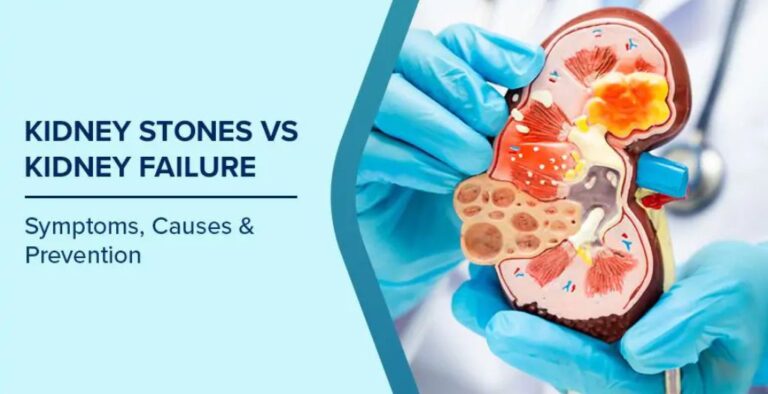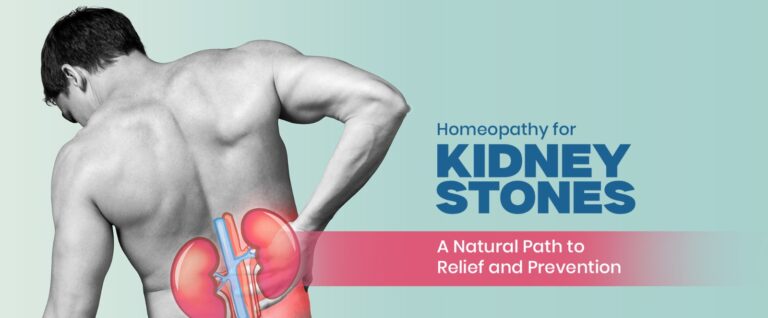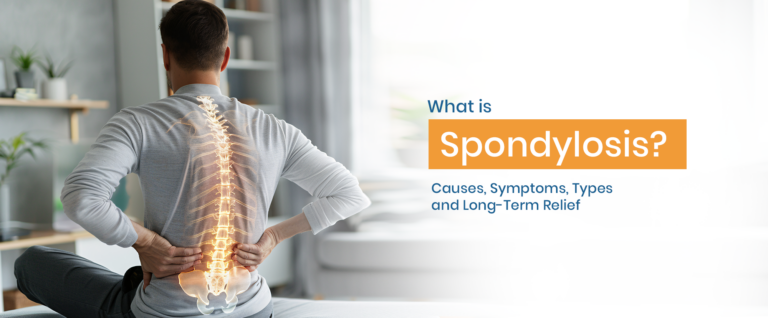Kidney stones are crystal clusters that are made up of minerals and other substances found in the urinary tract. These kidney stones can form anywhere in the urinary tract, kidneys, bladder, ureters, and urethra. In some cases, kidney stones can be passed through urine, while in some cases, they can be painful. Pain while peeing, fever, and pain on the side of your stomach and lower back are some common symptoms of kidney stones. Kidney stones are also called as renal calculi and nephrolithiasis.
In this article, we will be learning in detail about kidney stones, their symptoms, causes, prevention and treatments. So, please read on till the end.
What are kidney stones?
Kidney stones are clusters or solid masses formed from substances like acids, salts and minerals in the kidney. Kidney stones are also called as urolithiasis, nephrolithiasis or renal calculi.
How are kidney stones formed?
Kidney stones are formed when the urine becomes highly concentrated. As a result, chemicals like uric acid salts and calcium in the urine can crystalize, leading to the formation of kidney stones.
Prevalence of kidney stones:
- As per reports from the National Kidney Foundation, more than half a million individuals visit emergency rooms every year to get treated for kidney stones.
- A study from 2023 found that the prevalence of kidney stones in men above 80 years old was 19.7%.
- Men in the category of 60-79 years of age affected by kidney stones were found to be 18.8%, and 11.5% of male individuals were between 40-59 years.
Types of Kidney stones:
There are 4 types of kidney stones. These 4 types include the following,
Calcium Stones:
One of the most commonly occurring types of kidney stones is calcium stones. These stones are made up of calcium oxalate. They may also contain calcium maleate and calcium phosphate. Calcium stones usually form when an individual eats a diet rich in oxalate and low in calcium. Additionally, not drinking enough water and fluids also leads to the formation of kidney stones.
Struvite stones:
These types of stones are usually seen in individuals with UTIs (urinary tract infections). These stones form due to a kidney infection. Additionally, getting infections again and again can also cause these stones to form. Struvite stones may cause urinary obstruction as they are large in size.
Uric acid stones:
This is the second most common type of kidney stones. These uric acid stones are usually formed due to the presence of too much acid in the urine. These kidney stones are seen occurring in individuals affected by diabetes, gout, metabolic syndromes, and obesity. Eating foods like poultry, pork, beef, eggs, fish, etc can cause uric acid stones to form.
Cystine stones:
These types of kidney stones are seen in individuals who have cystinuria (a type of genetic disorder). Cystine stones are formed when the acid cystine leaks into the urine from the kidneys.
Stages of kidney stones
Kidney stones have four stages. These stages include,
Stage 1: In this, after the kidney stone forms, the individuals affected may experience kidney spasms as the kidneys try to push the stone out. In this stage, the individual may experience severe back and side pain that may occur in waves.
Stage 2: In this stage, the kidney stone enters into the ureter and, depending on its size, causes symptoms of pressure and pain.
Stage 3: Here in this stage, the kidney stone moves into the bladder. In this stage, the pain is usually less. However, the individual affected may still feel pressure in their bladder and a frequent urge to urinate. In certain cases, the kidney stone may also get stuck at the opening of the urethra and cause blockage of urine.
Stage 4: In the final stage of kidney stone, the stone reaches the urethra. In this stage, the individual needs to try harder to push the kidney stone and with the urine through the uretheral opening.
Causes of kidney stones:
There is no definite cause of kidney stones. These kidney stones are seen mostly occurring in individuals aged between 20 to 50 years old. Kidney stones form when there is excessive crystal forming substances present in the urine. While there is no single cause of kidney stones, there are certain risk factors that increases a person’s risk of developing these stones.
The risk of developing kidney stones is high in the following individuals,
- Animal Protein Rich diet: Individuals who eat a diet rich in animal protein like eggs, fish, poultry, beef, pork, etc are at a high risk of kidney stones.
- Dehydration: People who are dehydrated and don’t drink enough water and fluids can also get kidney stones.
- Health Conditions: Those who have certain types of health conditions such as hypertension, are at high risk of kidney stones.
- A high sodium diet: kidney stone risk is high in individuals who eat a diet rich in sodium
- A family history: Who have a family history of kidney stones
- Too Much Sugar: Excessive consumption of sugar can pose as a risk factor for kidney stones.
- Urinary acidity: Individuals who have increased urinary acidity with their urine pH falling below 5.5 also fall in the kidney stone risk category.
- Surgery: Individuals who have undergone intestinal or stomach surgery may also develop kidney stones in the future.
- Supplementation: Taking vitamin C can increase the risk of developing kidney stones. Hence, people who take vitamin C supplements may develop kidney stones.
- Blockages in the urinary tract: People whose urinary tract is blocked can get kidney stones.
- Effect of certain medications: Those who take certain types of medicines like laxatives, calcium-based antacids, diuretics and antiseizure medicines may also get kidney stones later in life.
- Obesity: Those who are obese or have high BMI (body mass index)
- Medical problems: Those who have medical conditions like kidney cysts, gout, osteoporosis, paraplegia or primary hyperoxaluria, hyperparathyroidism, renal tubular acidosis and cystinuria are also at an increased risk of developing stones in their kidney.
- Digestive issues: Those who have digestive diseases like severe diarrhea or inflammatory bowel disease (IBD)
Symptoms of kidney stones:
In most cases, a kidney stone will not cause any symptoms until the stone moves within the kidney or moves into one of the tubes called ureter, responsible for connecting the kidneys and bladder. If a kidney stone jams in one of the ureters, it may cause blockage in the flow of the urine. This blockage leads to swelling in the kidneys and spasming of the ureter, leading to severe pain.
The intensity of kidney pain may range from dull to sharp to severe. Individuals with kidney stones will mostly experience pain in their lower belly, back and side. They may feel like the pain is extending from their groin to the side.
If an individual has kidney stones, they may experience the following symptoms,
- Severe pain on either side of the lower back
- Pain radiating to the lower abdomen and groin
- Waving pain that keeps fluctuating in its intensity
- Nausea and vomiting
- Blood in urine
- A burning sensation when peeing
- Constant urge to urinate
- Inability to pee
- Fever and chills
- Cloudy and/or bad smelling urine
First signs of kidney stones:
Some of the first signs of kidney stones include the following,
- Nausea
- Severe pain
- Chills
- Fever
- Blood in urine
Kidney stone symptoms in men:
While most symptoms of kidney stones in men and women are similar, men may experience the following additional symptoms of kidney pain,
- Pain in the groin
- Pain in the testicles
Kidney stone symptoms in women:
While most symptoms of kidney stones in men and women are the same, however, unlike men, women may also experience urinary tract infections and pain in the pelvis due to kidney stones.
Kidney stones diagnosis:
To diagnose kidney stones, the healthcare provider will first perform a thorough examination of patient’s medical history and the symptoms they are experiencing. If the healthcare provider will suspect kidney stones, the patient will be asked to get the following tests done for a proper diagnosis,
Blood tests:
These tests are performed to examine how the kidneys are function, check for signs of infection and high levels of calcium. Blood tests may also help diagnose other conditions that may be the reason behind the formation of kidney stones.
Urine tests:
Urine tests are conducted to detect the presence of blood, signs of infection and stone forming crystals in the urine.
Imaging tests:
Imaging tests are carried out to see the location, size, shape and number of kidney stones. Imaging tests for diagnosing kidney stones may include CT scans, retrograde pyelogram, kidney ultrasound and X-rays.
Treatments for kidney stones:
If the kidney stone is small in size, there are chances that it may pass on its own. In this case, your healthcare provider will monitor the symptoms you are experiencing until the kidney stone passes through urine on its own. To speed up this process, your healthcare provider may prescribe certain medications.
Kidney stones that are larger in size may require some treatment depending on its location, size, number, symptoms and any other health factors it may cause such as infections.
Can Kidney stones be treated with Homeopathy?
Yes, kidney stones can be treated and cured with homeopathy treatments. Homeopathy for kidney stones not only helps remove the existing stone but also prevents its formation in the future. Homeopathy remedies work by flushing out the kidney stones and providing complete relef from its symptoms.
Homeopathy treatment for kidney stones?
A homeopathy doctor prescribes the right homeopathic treatment for kidney stones after considering various factors like your health, the size of the stones, the number of stones and its location. Additionally, the treatment prescribed also depends on the symptoms of kidney stones you are experiencing.
Homeopathy treatment is a natural and holistic way fo treating kidney stones. As it not only addresses the current condition, but also treats the root cause of the problem, ensuring that it is eliminated completely. Additionally, homeopathy treatments also prevent the future formation of kidney stones. Homeopathic remedies help by flushing the kidney stones out relieving you from pain and discomfort. Additionally, these remedies also help with symptoms like blood in urine, nausea and vomiting. Homeopathic remedies also come with another benefit of having minimal to no side effects.
At Dr.Care, we use the best homeopathic remedies depending on your health to provide you with the best treatment services. Our homeopathic doctors have years of experience in homeopathy and provide the right treatments after diagnosing your condition thoroughly. We provide the best homeopathic treatments that are focused towards holistic healing and providing you with good immunity. Our homeopathic doctors don’t just treat symptoms, they treat the root cause of diseases and conditions to ensure you never have the problem again. If you are looking for homeopathy treatment for kidney stones, Dr.Care is the best for it.
Kidney stones diet
The best kidney stone diet includes,
- A diet rich in citrus fruits
- Eating food with lots of calcium and vitamin D
- Taking less salt in diet
- Eating less of animal protein
- Taking alot of water through the day
Prevention of kidney stones:
There are certain foods that can increase an individual’s risk of developing kidney stones. To prevent the risk of developing kidney stones and understand what foods may cause them in you, it is important to consult your healthcare provider. In general, following the below mentioned tips can help prevent the developing of kidney stones,
- Limit your intake of foods that are high in sodium
- Limit your intake of foods that are rich in sugars
- Limit eating animal based proteins
- Limit your intake of foods that have high oxalates, such as spinach and peanuts
- Consume plenty of water and fluids throughout the day
- Eat foods that are a rich source of calcium
- Maintain a healthy weight by eating a balanced diet and exercising regularly
Complications of kidney stones:
Kidney stones when left untreated, can cause health complications. While the complications of kidney stones rarely occurs, they can still be problematic. Some of the complications that may occur if kidney stones are left untreated include the following,
- Pus accumulation (formation of abscess)
- Swelling of kidneys (hydronephrosis)
- Pyelonephritis
- Forniceal rupture
- Pyonephrosis
- Sepsis
- Rena colid
- Kidney failure
- Ureteral stones
- Urosepsis
- Urinoma
- Urinary extravasation
Conclusion
Having kidney stones can be difficult to deal with especially if you experience symptoms of severe pain, nausea and vomiting. Additionally, kidney stones that are large in size and do not pass through urine can make the symptoms worse and also and take a toll on the everyday life. To prevent the formation of stones in future it is essential to be aware of the various preventive measures such as eating a healthy diet, limiting intake of meat, sodium and sugar and drinking plenty of water. It is also important to note that kidney stones are a temporary problem and can be cured. If you experience any of the symptoms of kidney stones, such as pain in the back nausea and vomiting urinary issues it is essential to show it to a doctor and get properly diagnosed
Homeopathy treatment for kidney stones is gaining popularity due to its various benefits. Homeopathy treatment for kidney stones offers long term relief from kidney stones by treating the symptoms, addressing the root cause and preventing the future formation of such stones. Seeking proper homeopathy from an experienced homeopathic doctor is essential to ensure complete and long-term recovery. At Dr.Care, our team of expert homeopathic doctors have years of experience in treating various health conditions and disease including kidney stones. At Dr.Care, our aim is to focus on your overall health and not just the exisiting condition you have. If you have kidney stones and are looking for a permanent solution, then contact our Dr.Care team today.



